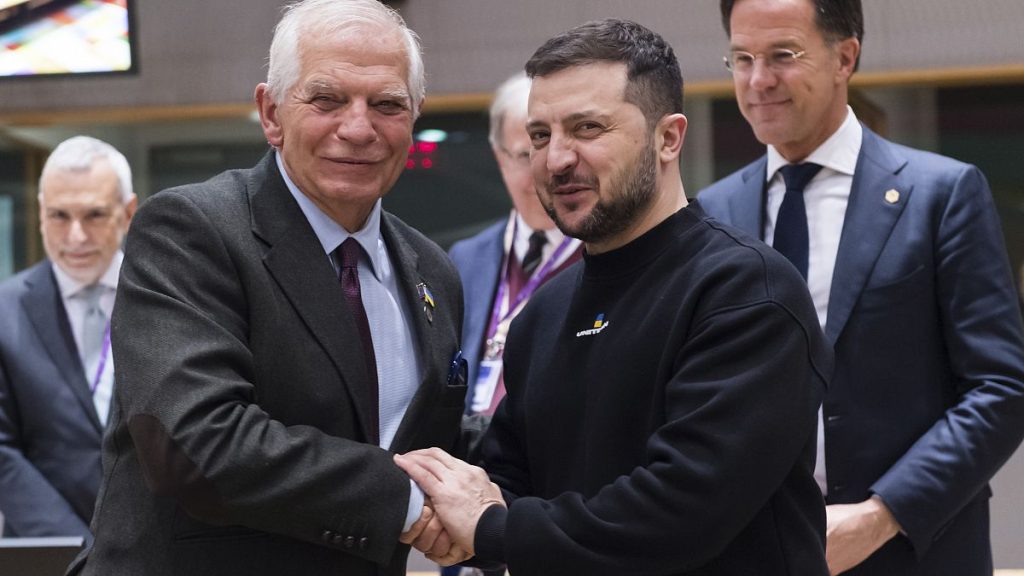Lawmakers in the European Union are pushing for more support for Ukraine in the face of the ongoing conflict with Russia. EU lawmakers have called for the seizure of Russian state assets to provide additional assistance to Ukraine, claiming that current plans do not go far enough. While EU countries are discussing an aid package of around €3 billion per year for Ukraine using interest from Russian central bank capital held within the EU, lawmakers are seeking a more aggressive approach. US counterparts have finalized a aid package of €57 billion for Ukraine, prompting EU lawmakers to call for the seizure of all of Russia’s assets to prevent Ukraine from running out of money.
During the final European Parliament session before the June elections, Włodzimierz Cimoszewicz of Poland’s Socialists and Democrats emphasized the need for Europe to seize Russia’s assets in order to prevent Ukraine from facing financial collapse. Other lawmakers across the political spectrum echoed this sentiment, expressing concerns that the existing aid plans proposed by the European Commission do not adequately address the ongoing crisis in Ukraine. Andrius Kubilius of Lithuania’s European People’s Party emphasized the importance of holding Russia accountable and ensuring that it compensates Ukraine for the damages inflicted.
Following intense political negotiations, the US House of Representatives approved a significant aid package for Ukraine, earning praise from Ukrainian President Volodymyr Zelenskyy. However, the majority of Russian extraterritorial assets, totaling €210 billion, are held within the EU, particularly at the Euroclear depositary in Belgium. EU foreign policy chief Josep Borrell has argued that the EU should capitalize on Russia’s assets to support Ukraine’s defense efforts, rather than using seized assets solely for reconstruction purposes. Borrell has highlighted the necessity of adhering to international law in the process of asset seizure, echoing concerns raised by individuals like Christine Lagarde of the European Central Bank.
The push to seize Russian assets within the EU to support Ukraine is gaining momentum as lawmakers advocate for a robust response to the conflict. While plans for a €3 billion annual aid package for Ukraine are being discussed using Russian central bank capital, EU lawmakers are adamant about the need for more significant measures. The US aid package of €57 billion has set a precedent for substantial support for Ukraine, prompting EU lawmakers to emphasize the urgency of seizing all of Russia’s assets to prevent Ukraine from facing financial hardship. Continued efforts are being made to address legal concerns and ensure that any asset seizure is conducted in accordance with international law and standards.
The escalating conflict between Russia and Ukraine has prompted calls for increased support for the latter, with lawmakers in the EU and the US advocating for substantial aid packages. EU lawmakers are pushing for the seizure of Russian assets within the EU to provide additional resources for Ukraine, as existing plans are deemed inadequate. The US has already approved a significant aid package for Ukraine, raising the bar for international support for the war-torn country. Discussions continue on how best to utilize Russian assets to bolster Ukraine’s defense capabilities, with a strong emphasis on ensuring that any asset seizure complies with international legal standards. Lawmakers are united in their determination to prevent Ukraine from facing financial difficulties and to hold Russia accountable for the damages inflicted during the ongoing conflict.


